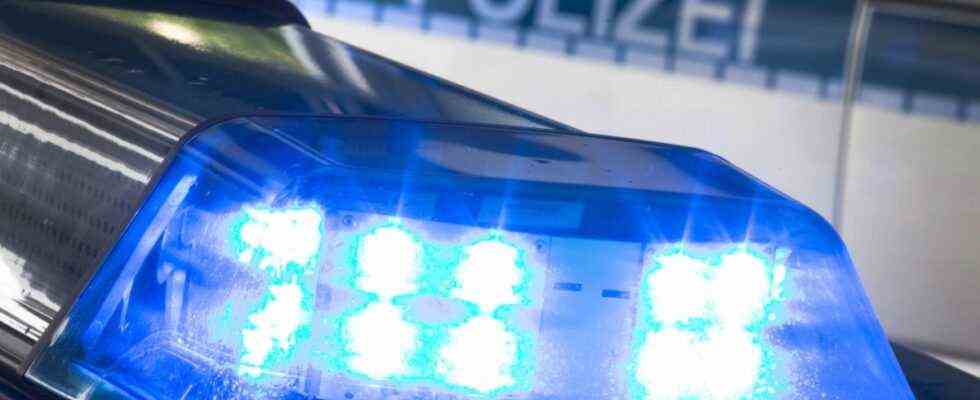On this cold December lunchtime there is another bicycle near the S-Bahn station Fasanenpark. Thrown carelessly into the meadow, lightly powdered with snow. Nobody parks their bike this way, not even when they’re in a hurry. It will be one of many wheels that are missing somewhere. One that is stolen and then left standing or lying when the thief no longer needs it. On the Facebook page of the Unterhaching village community, the observation of owner and ladyless bicycles in the community area is increasing, as are the reports of missing persons belonging to their own bicycles.
Siegfried Graf, head of the Unterhaching police station, knows many such cases. In the pandemic, he recently said at the town hall meeting, the number of bicycle thefts had risen noticeably. He can only speculate why this is so. Maybe because it is currently so difficult to buy bicycles, the delivery times are very long. “It is noticeable that relatively simple bikes are stolen, not just high-quality ones,” said Graf. Surely one or the other would like to save the taxi. “But that contradicts the fact that not so many end up in the ditch,” said Graf. And: outside of Munich it’s not as bad as in the city.
Police protection at the opening of the vaccination center in Oberhaching.
(Photo: Claus Schunk)
Although the number of police operations in the pandemic has also increased noticeably in the Munich district, in particular due to numerous control tasks, the overall number of crimes is not. On the contrary: in the district of Munich, around 3.9 percent less was counted in 2020 than nine years earlier, although the population has grown by 8.4 percent during this period. In its annual statistics “At a glance”, the Munich district office focused this time on the police and rescue workers and stated: “Compared to other major cities, the greater Munich area is the safest region in Germany – for the 45th time in a row. ” The past few months have once again made it clear what an important role the so-called blue light organizations play in our everyday life, “writes District Administrator Christoph Göbel (CSU) in his foreword.
Wrong craftsmen and wrong corona patients
There are seven police inspections in the Munich district. It was found there that the Corona year 2020 had many expected but also some surprising effects on crime. The number of acts of violence caused by alcohol has decreased. On the other hand, there was a significant increase in crimes against life, sexual and brutal crimes. Bag theft and shoplifting have decreased due to the lockdowns, as have burglaries.
The burglars have reoriented themselves: While people were sitting at home in the home office, the number of break-ins into offices and public facilities increased. The many missions often involved disputes and insults, mostly in connection with corona measures. Con artists were also very active and troubled the officials. In addition to the wrong craftsmen and the wrong police officers, the wrong corona patients came along who wanted to pull money out of their pockets from supposed relatives. Incidentally, the officers never had to use a service weapon.
In contrast, the number of traffic accidents in 2020 was lower than it has been in a long time. Which is not surprising, given that a lot was closed in the first year of the pandemic and most of the people worked at home. However, the trend towards cycling more was also reflected in the accident statistics. More than half of the seriously injured were pedestrians and cyclists. As the most common cause of accidents overall, the District Office cites the insufficient safety margin and distractions when driving, for example by using the navigation system or fiddling with the cell phone. “At a speed of 50 kilometers per hour, the driver covers almost 14 meters in blind flight,” warns the authorities and points out that telephoning is not only prohibited while driving a car, but also on a bicycle. Around a third of the “cell phone violations” in the greater Munich area were committed by cyclists.
The Red Cross set up the vaccination center in Unterschleißheim.
(Photo: Florian Peljak)
The district office’s brochure highlights the services of the emergency services. “They were and are in constant use and, since the corona pandemic has dominated our lives, have taken on many other important tasks such as running the vaccination centers,” said District Administrator Göbel. Red Cross, Malteser Hilfsdienst and Johanniter Unfallhilfe have built and operated the four vaccination centers in the district, three of them dismantled and two have now been set up again. The technical relief organization is also constantly on duty during the pandemic. It has only just turned back 20 volunteers for the vaccination center in Haar, as the district administrator reported last week. The application for help with the Bundeswehr was also approved last Thursday, 15 soldiers are deployed in the area of logistics and organization in Haar, and there is still no answer to the additional application for help from medical staff.
The district sees itself well positioned with the fire brigades, the district office reports of the “highest density of fire brigades in all of Germany”. In addition to the 45 volunteer brigades, seven works and three company fire brigades as well as the fire brigade of the Federal Armed Forces University in Neubiberg ensure safety. They are coordinated by the fire brigade operations center (FEZ) of the district at Mariahilfplatz in Munich. There, too, the pandemic is noticeable in the workload. The district office has determined that the number of mediation of services and advice to citizens has doubled. People also call about a heating system malfunction or power failure. The FEZ has developed into a “service center”.

